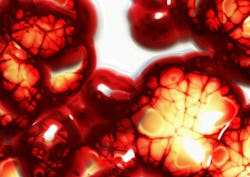Medical Diagnostic Laboratories has expanded its testing to include an antibody detection assay for SARS-CoV-2 (COVID-19).
Coronavirus Disease 2019 (COVID-19) is an acute respiratory disease caused by a viral infection with severe acute respiratory syndrome coronavirus 2 (SARS-CoV-2). The virus, which has infected and caused deaths of over 230,000 people worldwide, has rapidly escalated to pandemic status since it first appeared in Wuhan, China, in December 2019. SARS-CoV-2 virus spreads very quickly and a subset of severely infected individuals require hospitalization. As a disease, COVID-19 shows considerable symptomatic variation. Individuals may have no symptoms at all, while others may present with a mild cough and fever, and still others may experience severe pneumonia and respiratory failure, specifically in patients with pre-existing conditions such as respiratory distress, diabetes, and cardiovascular disease.
The advantage of serological diagnostic assays over direct detection of the virus by RT-PCR is their ability to detect past infections. Once a patient has recovered from COVID-19 and virus has been cleared from the body, viral RNA is no longer available for detection in the respiratory tract, leaving only a short window during the acute stage of infection in which SARS-CoV-2 can be detected. While this works well for the diagnosis of ongoing infections, assays designed to detect SARS-CoV-2 genetic materials give no indication as to whether a patient has had the infection historically, and whether or not the patient is immune to COVID-19 or still susceptible to infection.
Serological tests detect antibodies, which are specialized proteins generated by the patient’s immune system and are present in blood during an infection. The presence of anti-SARS-CoV-2 antibodies indicates that the immune system has detected the presence of virus, even if the patient never exhibited symptoms. While antibodies may not be appropriate for acute-phase diagnosis, serological tests still play a critical role in the fight against COVID-19. The type of antibody present and its relative levels may also be used to indicate the stage of infection and estimate time since exposure for contact tracing.
Although a positive antibody test cannot be interpreted to mean that the patient is completely immune to future episodes of COVID-19, physicians and other providers may decide that a positive result, in conjunction with additional clinical data, provides support for a patient’s ability to return to work.
This new immunological assay joins the molecular-based assay released by MDL on March 16, 2020, to detect SARS-CoV-2 viral RNA in respiratory swab specimens. The SARS-CoV-2 (COVID-19) by Real-Time Reverse Transcription PCR (CDC N1, N2, RP targets) has been approved by the New Jersey State Department of Health and is offered under the Food and Drug Administration (FDA) emergency use authorization (EUA).
According to Dr. Eli Mordechai, Chief Executive Officer (CEO), “Our laboratory has always directed our resources into research by developing and enhancing tests in collaboration with our national and international clinician clients. We are committed to leading the way in clinical diagnostics and partnering with healthcare providers to help Americans identify and mitigate any risks to their health, protect their families, and halt the advancement of this newly discovered disease.

